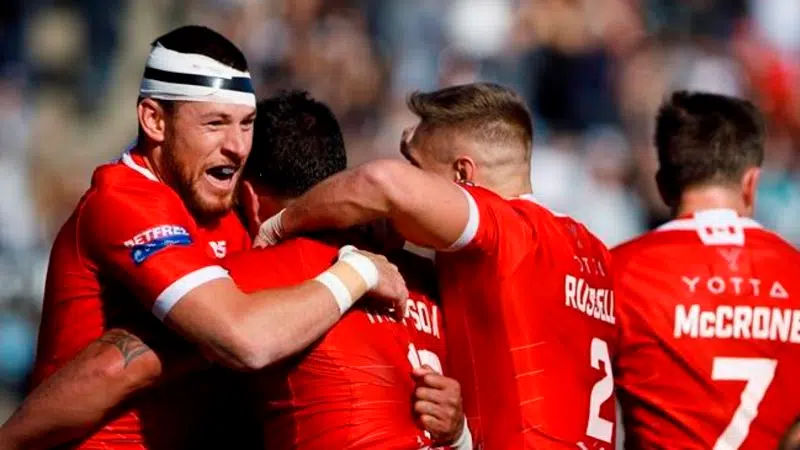
Thanks to hard work and timely inspiration, Wolfpack rise up rugby league ranks
TORONTO — In advance of the Million Pound Game, Toronto Wolfpack coach Brian McDermott had team performance analyst Chris O’Connor put together a video.
It combined disappointing moments from 2018, including snippets of Toronto’s 4-2 loss to London in last year’s rugby league promotion showdown, with highlights and challenges from 2019. Using Rudyard Kipling’s poem “If,” the video ended with footage backing up the theory — in McDermott’s words — that “If you want it, you can do it.”
For McDermott, the Kipling poem says: “Have a bit of humility about yourself and be ready for any challenge. Don’t get too far above yourself and if you can manage all that, you can do anything you want. It’s a case of looking inward. The answers are always on the inside.
“(O’Connor) knocked that (video) together, we showed the players and there wasn’t a dry eye in the house, I can tell you that,” McDermott said.


